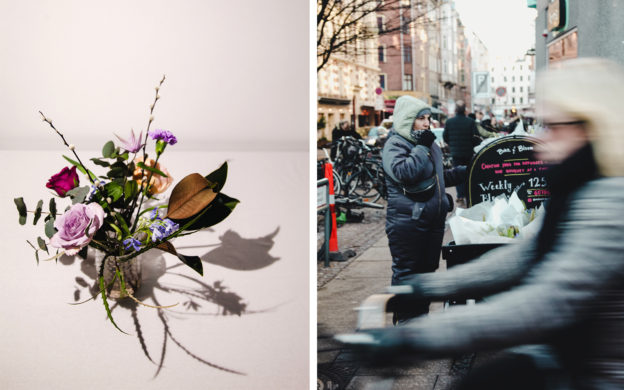When I meet Benedikte Preuthun Mortensen and Velina Angelova Andersen in their sprawling basement studio in Frederiksberg, Benedikte’s fingers are stained a deep red, which she apologizes for as we shake hands. “We still do a lot of the physical work with the flowers,” she explains, so my hands are always a funny color.”
Benedikte, originally from the Jutland region of Denmark, is the Creative Director and founder of Bike & Bloom, a social enterprise in Copenhagen that gives jobs to refugee women as florists and flower sellers. Her partner, Velina, is the Director of Integration. The business launched in May of 2017, with Velina joining the team shortly thereafter.
They currently employ three refugee women part-time and produce 300 bouquets over a two day period. They then sell the bouquets from their cargo bikes in markets or on street corners of the city. “We’re very much hands-on here,” Benedikte laughs, “I’m still the one getting the flowers at 3 am every week, and if there’s a random job that needs to be done, we do it. That’s part of running a small business, regardless of who you work with.”
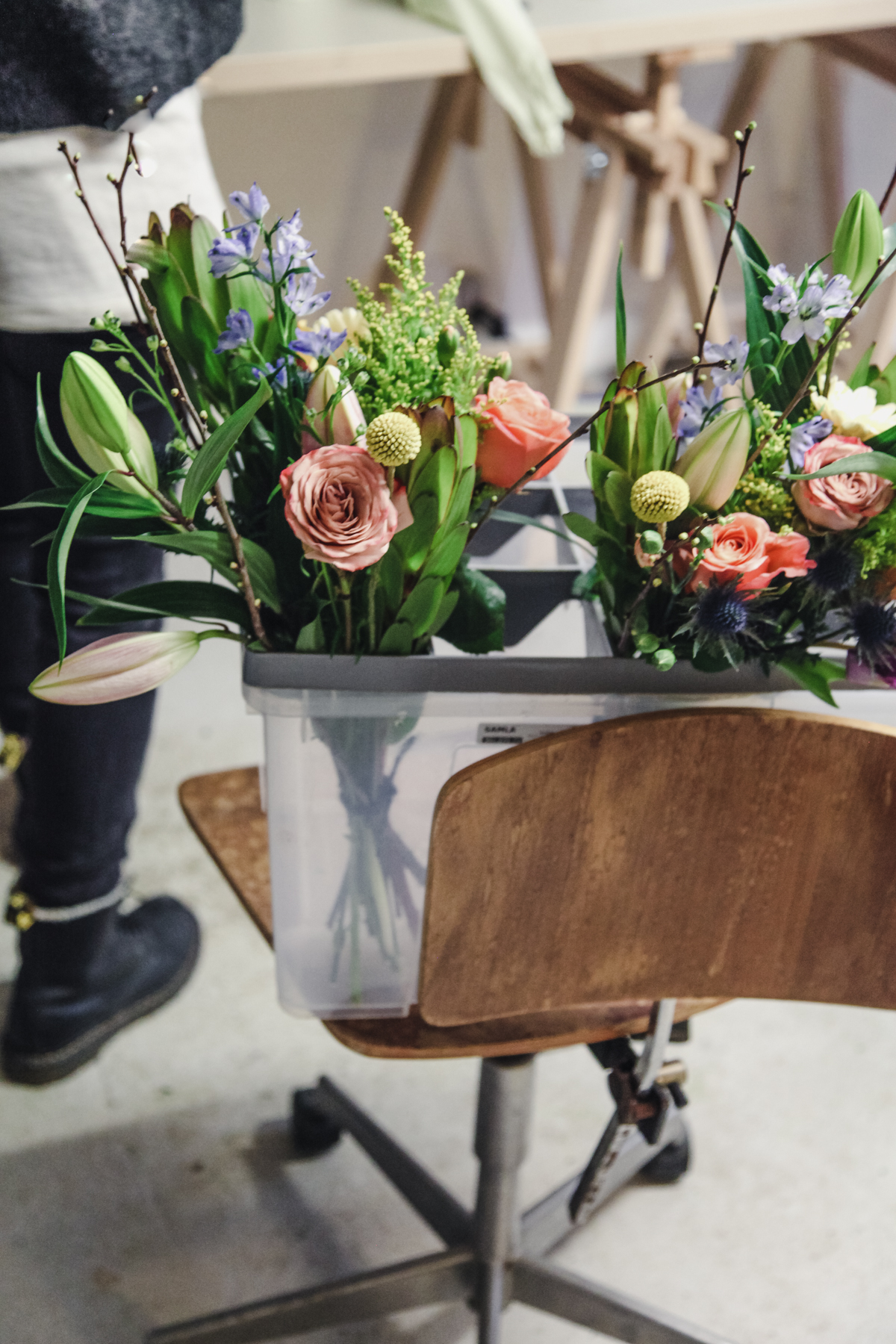 | 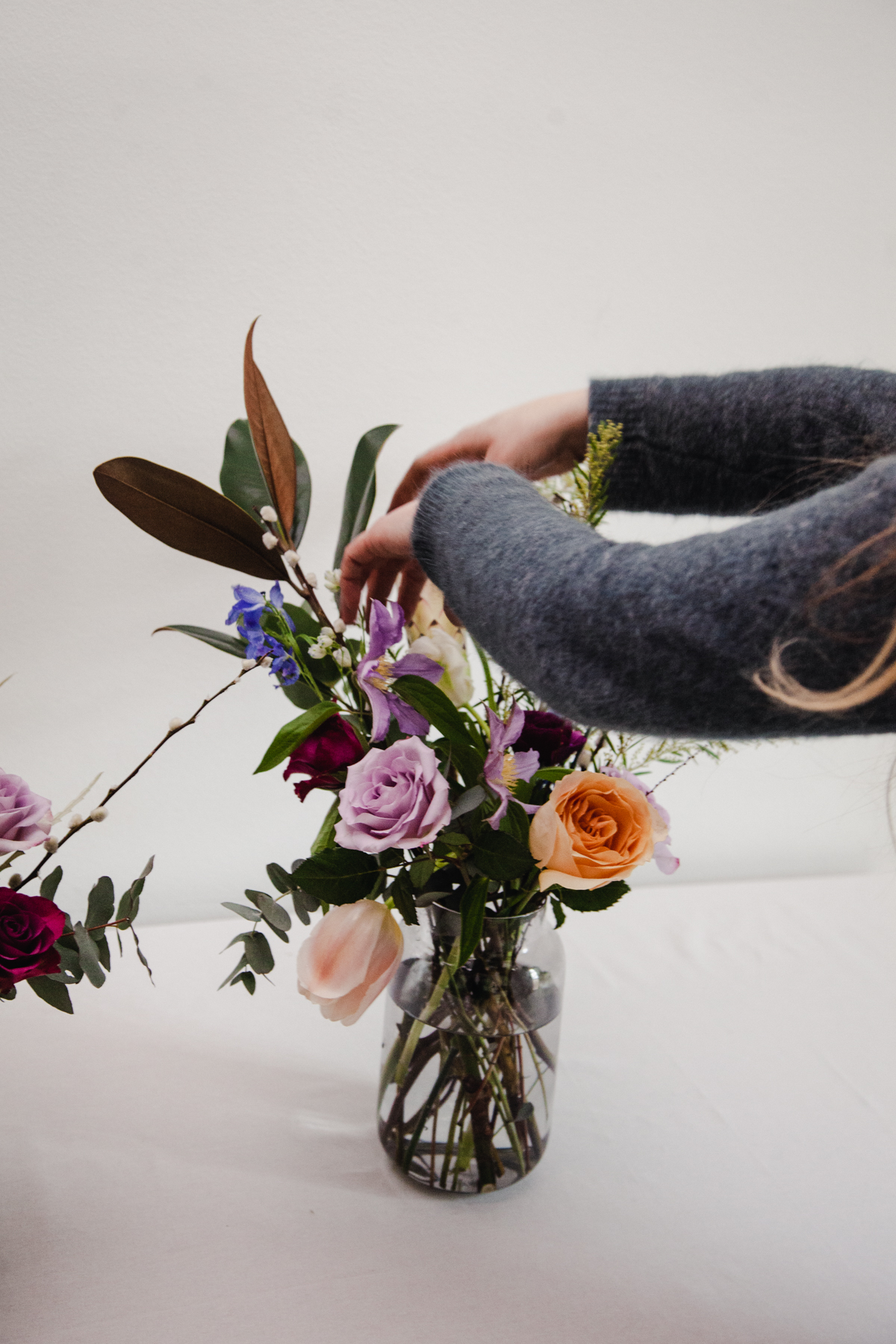 |
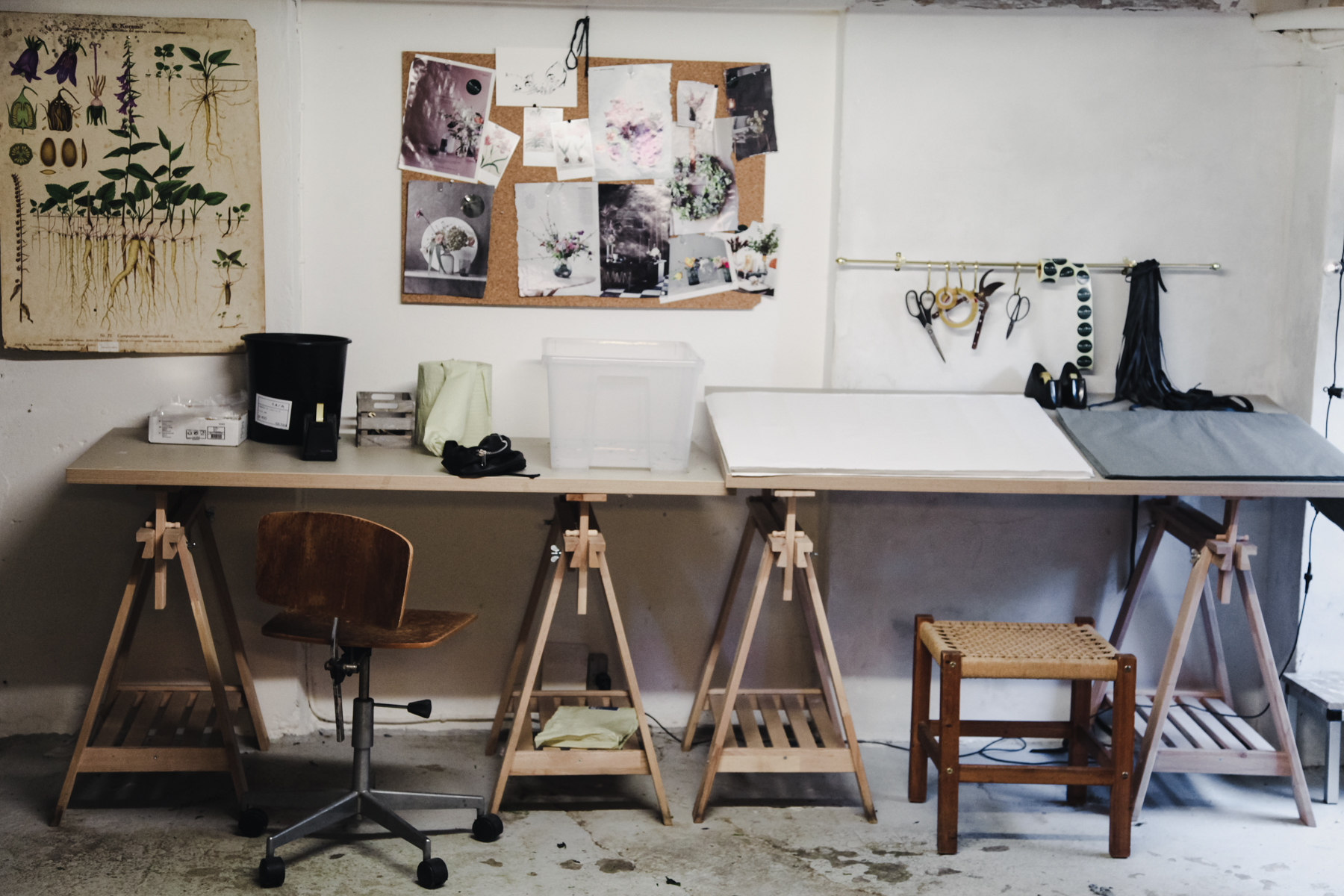 | |
Bike & Bloom also sells through “ambassador shops,” typically design-oriented stores that agree to sell their flowers. All bouquets are 125 DKK and are made with a mix of flowers; they’re simple but beautiful bouquets, big enough to be easily divided into a few smaller vases, or kept as one bouquet in a larger vase for your weekly fix of floral.
The shops are promoted through Bike & Bloom’s instagram account, which drives traffic both for the flowers but also into the stores generally. “We aim to make it something beneficial for our ambassadors, as they’re not getting paid to have our flowers,” Benedikte says.
Benedikte, who is trained as a project designer, started Bike & Bloom after learning that only 13% of women refugees have a job after three years of living in Denmark, as compared to 45% of men refugees. “I was working on social projects, including one for mental health, but the thing about social projects is that they have a end date. So they’re really helpful for a short period of time, and then they’re over and the help goes away. I wanted to create an actual business that would be self-sustaining.”
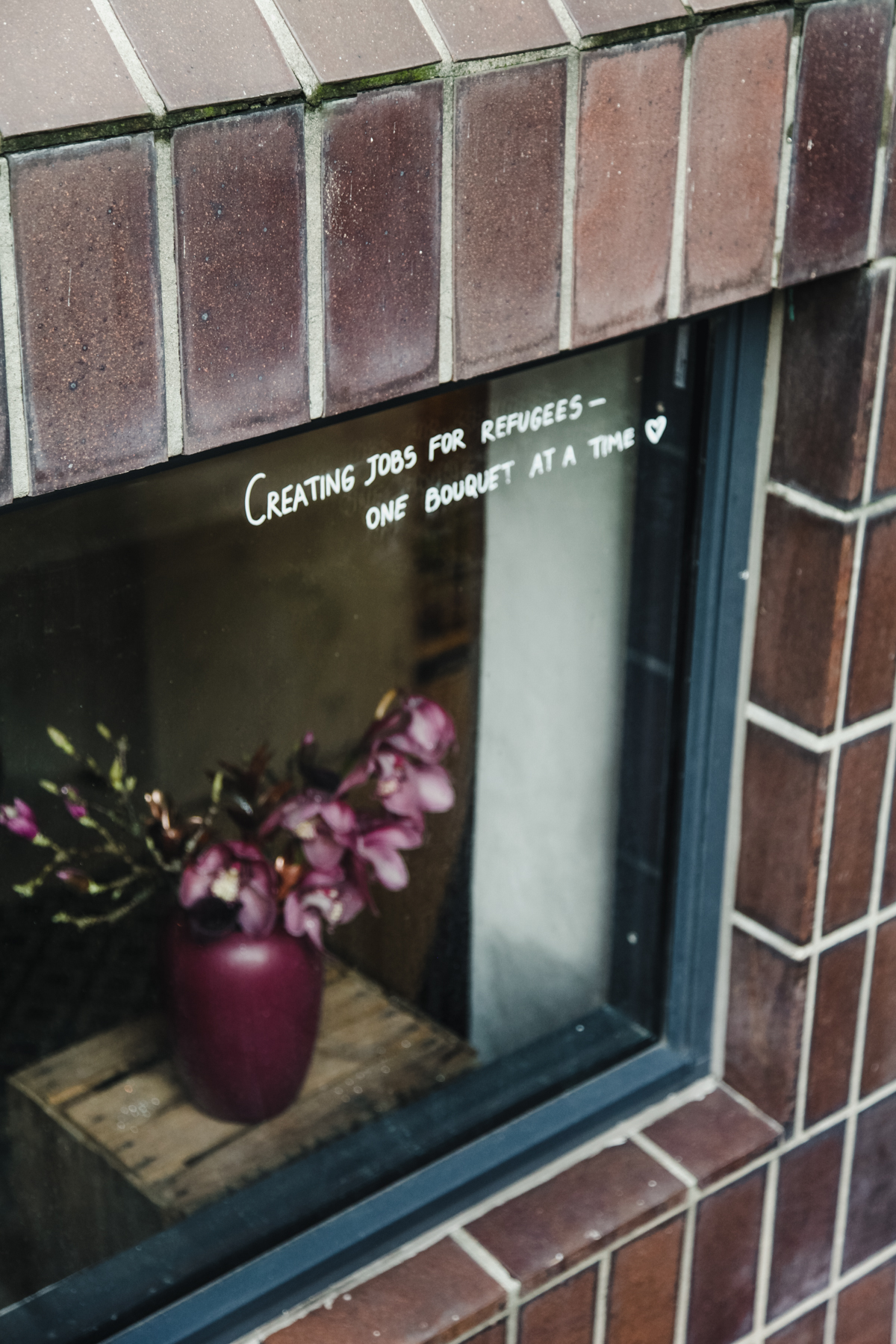 | 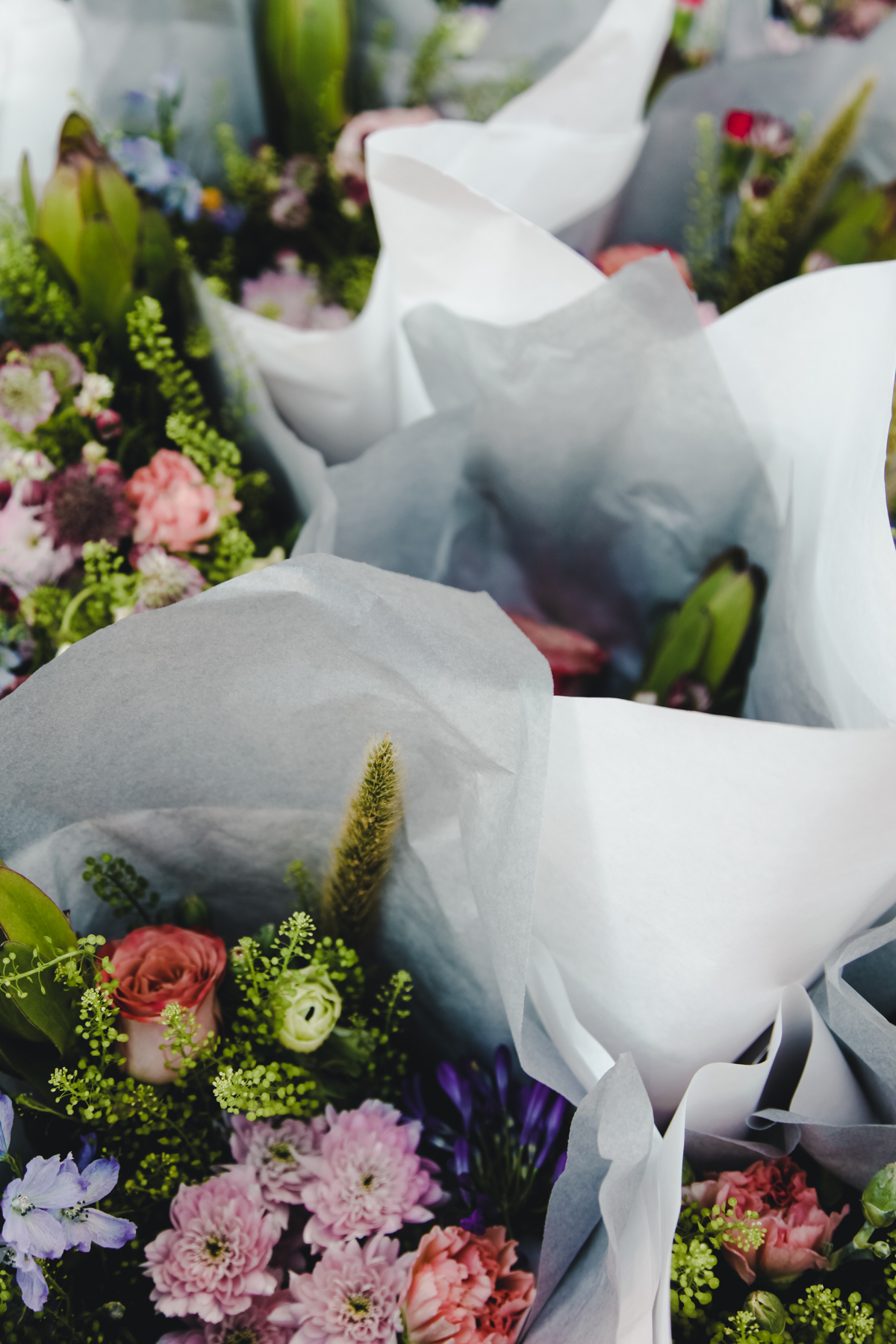 |
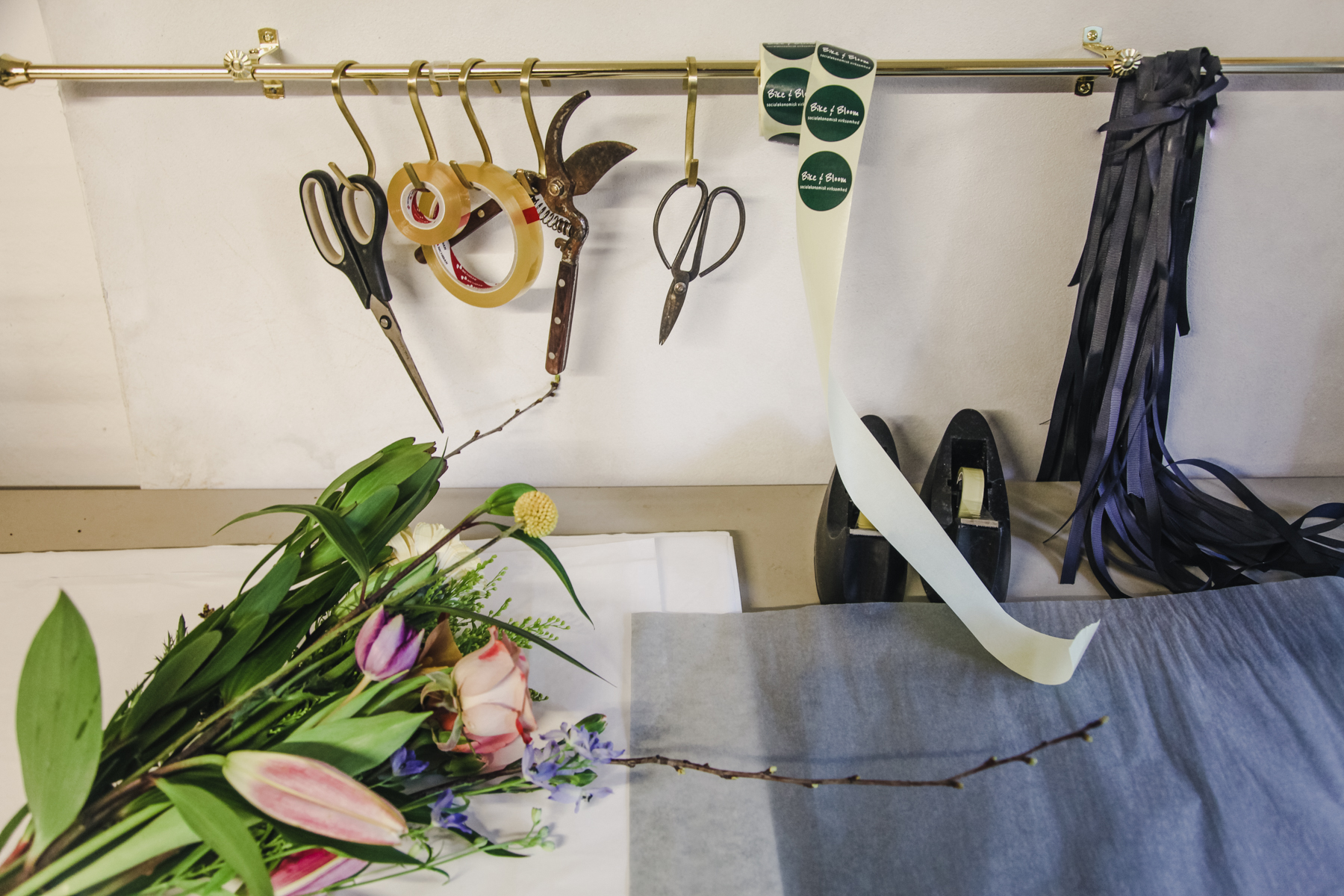 | |
Though she’s not a formally trained florist, Benedikte decided on flowers as a perfect medium for those looking to overcome a language barrier.
“Flowers are tactile and visual, and we can explain a lot just through simple gestures. It’s one way we approach language learning. Then as the women become more confident, we get to see what their specific skills are; some are better at making the bouquets, others are better at selling. Then we help them develop those skills along with Danish language skills.”
Velina, who has a master’s in advanced migration studies from the University of Copenhagen, is originally from Bulgaria and lived in the US for a number of years before moving to Denmark. Her sociological understanding of the obstacles refugees face, as well as her own experiences as an immigrant, have informed Velina’s work at Bike & Bloom. “When I heard about this project, I knew I wanted to be part of it,” she explains. “I had been looking for ways to get involved with the refugee community, and a business model like this one is really life-changing.”
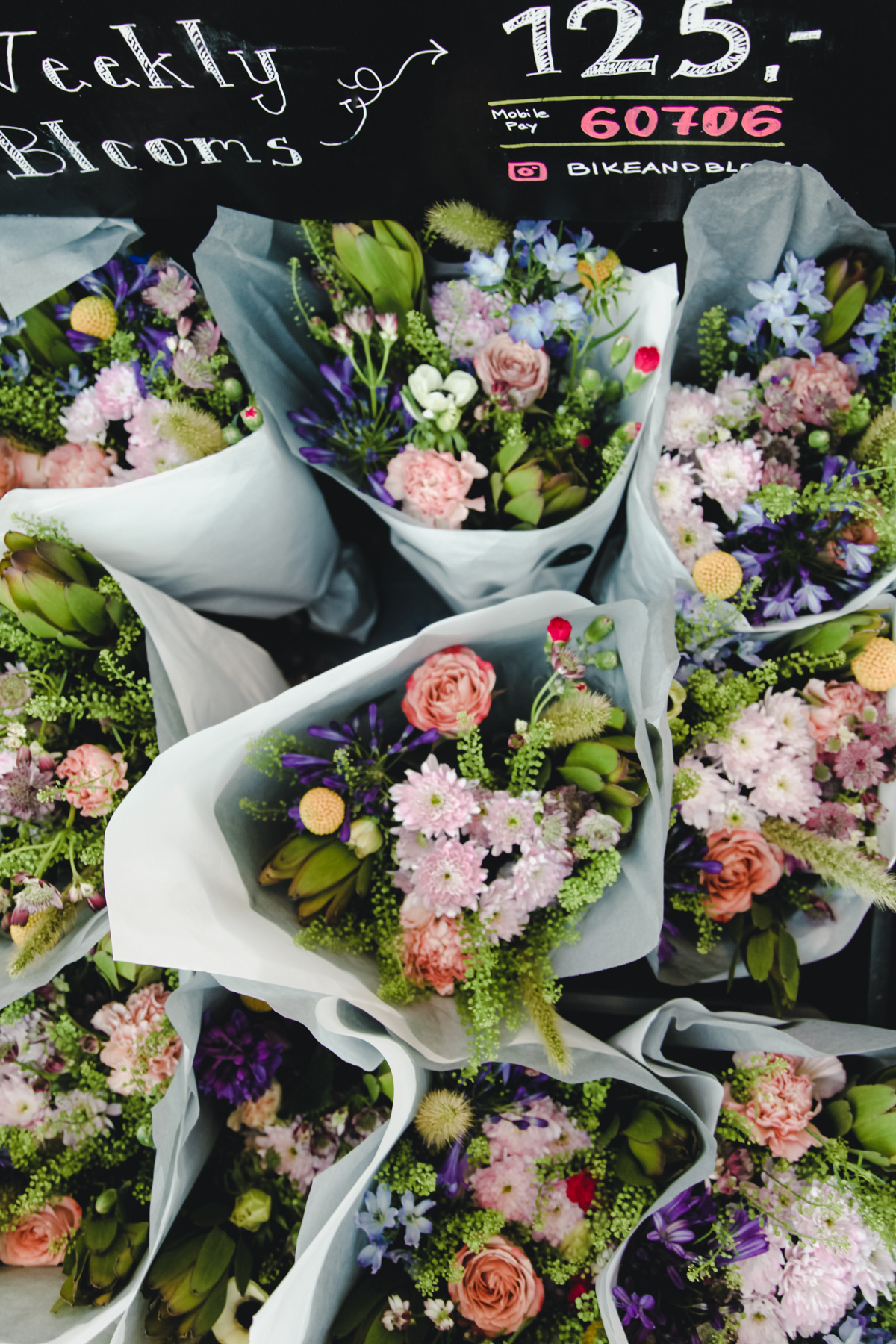 | 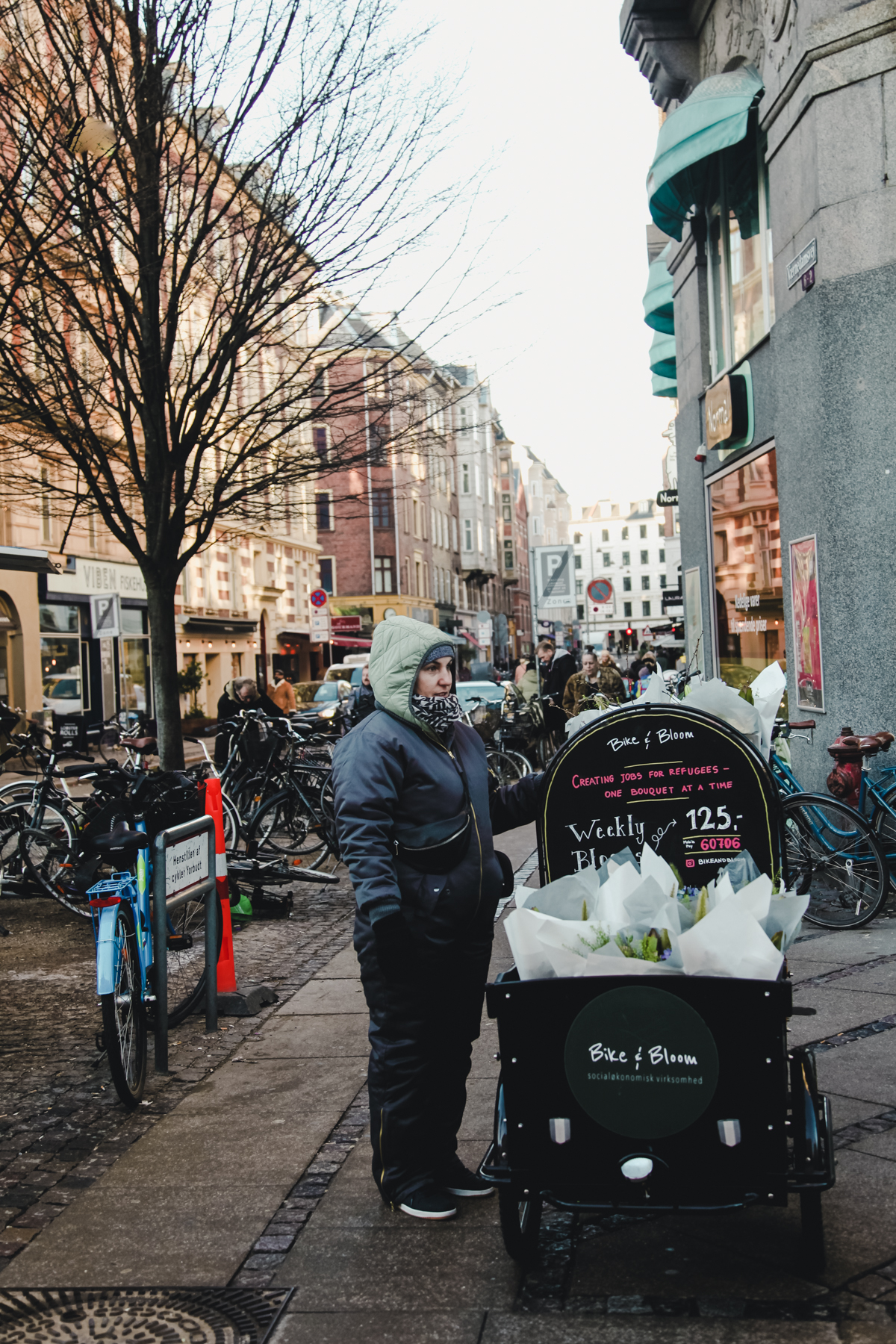 |
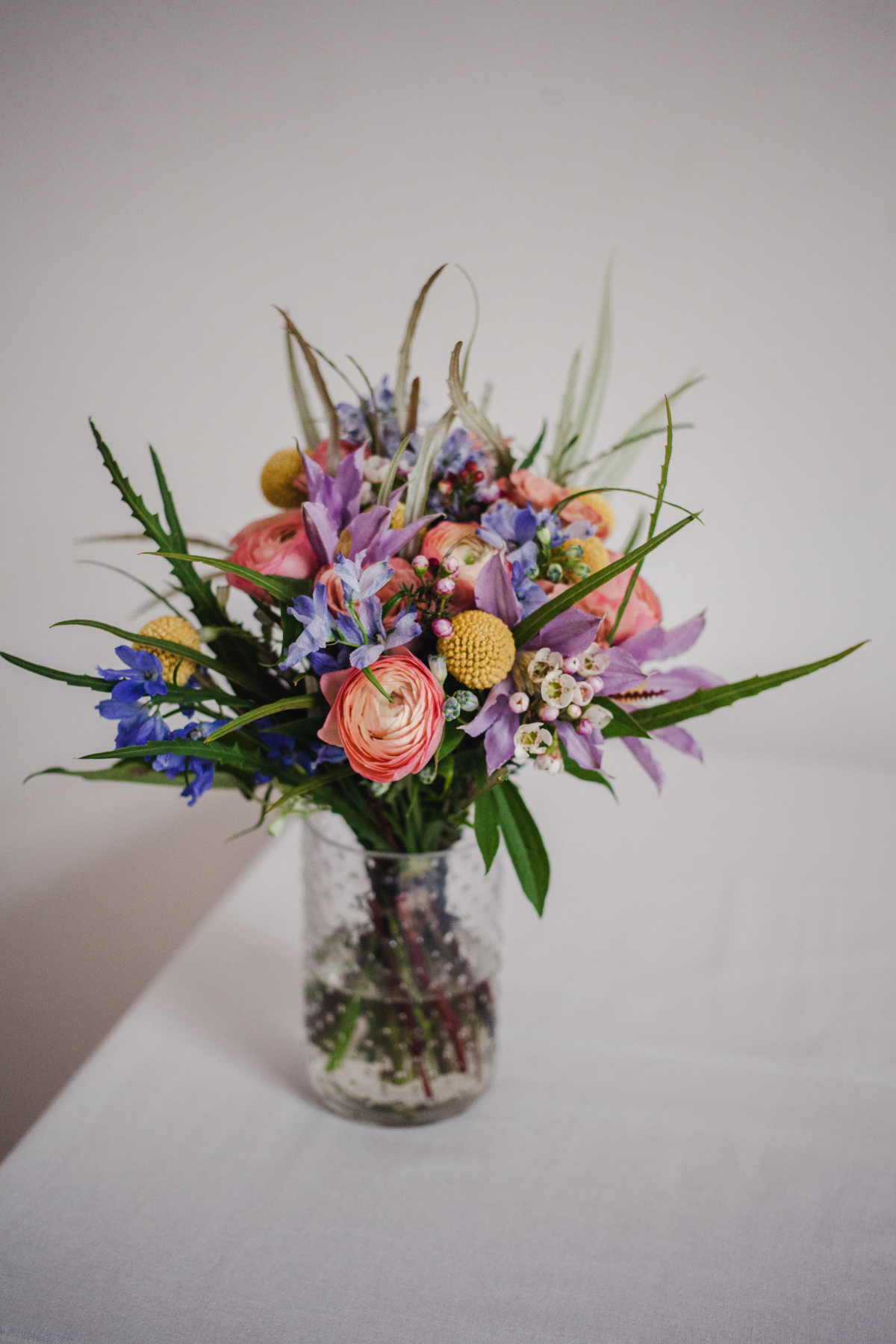 | 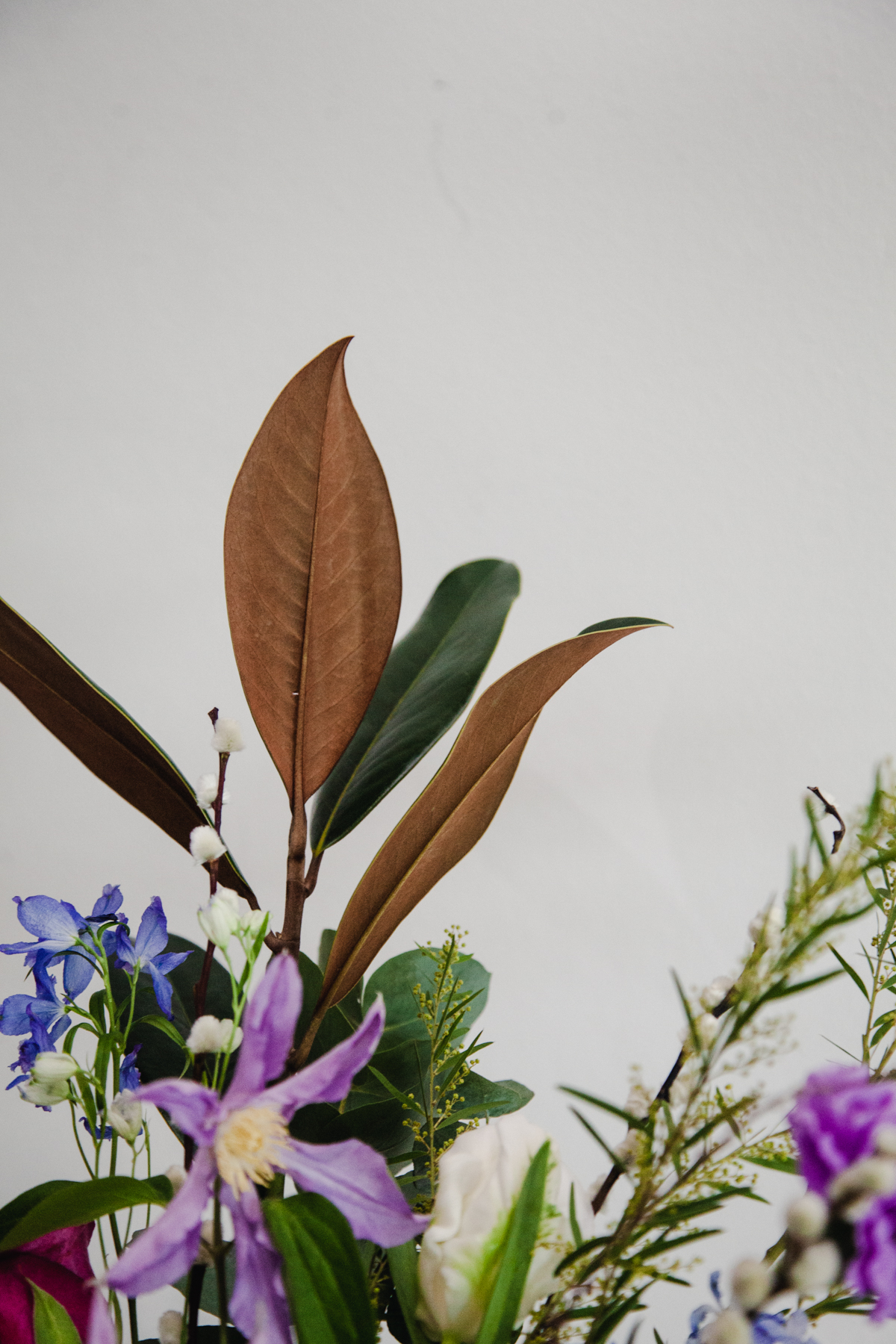 |
Benedikte agrees, although she says she’s encountered pushback. “Money is a bit of a dirty word in social enterprises,” she says, “and people often think that if we’re doing something socially conscious, that we should be a charity and not be earning money. But that model isn’t always useful; we want this to be a self-sustaining business so that we can continue to run and hire more people without having to rely on donations and fundraising. It also means we’re creating real, lasting jobs, and that is the most important thing for us.” The outcomes speak for themselves, Velina notes, explaining, “The florists have also shown considerable improvement of their Danish language skills, as well as increased confidence in terms of using Danish. They have gained work skills and developed a network. Through their work here, they have acquired knowledge about the Danish labor market and Danish traditions in a more organic way than, for example, a classroom setting.”
Bike & Bloom works directly with the municipality and the Danish Refugee Council to find applicants. Their positions begin with 1 – 2 month internships, which are then transitioned into part-time jobs if both the woman and the business find it to be a good fit.
“Isolation is a part of what makes being a refugee so difficult,” Benedikte notes, “so both the business and the women really benefit from the social aspect of this job. But of course it has to be work that the person wants to do, and that she enjoys. One of the great things about flowers is that they’re easy to enjoy!”
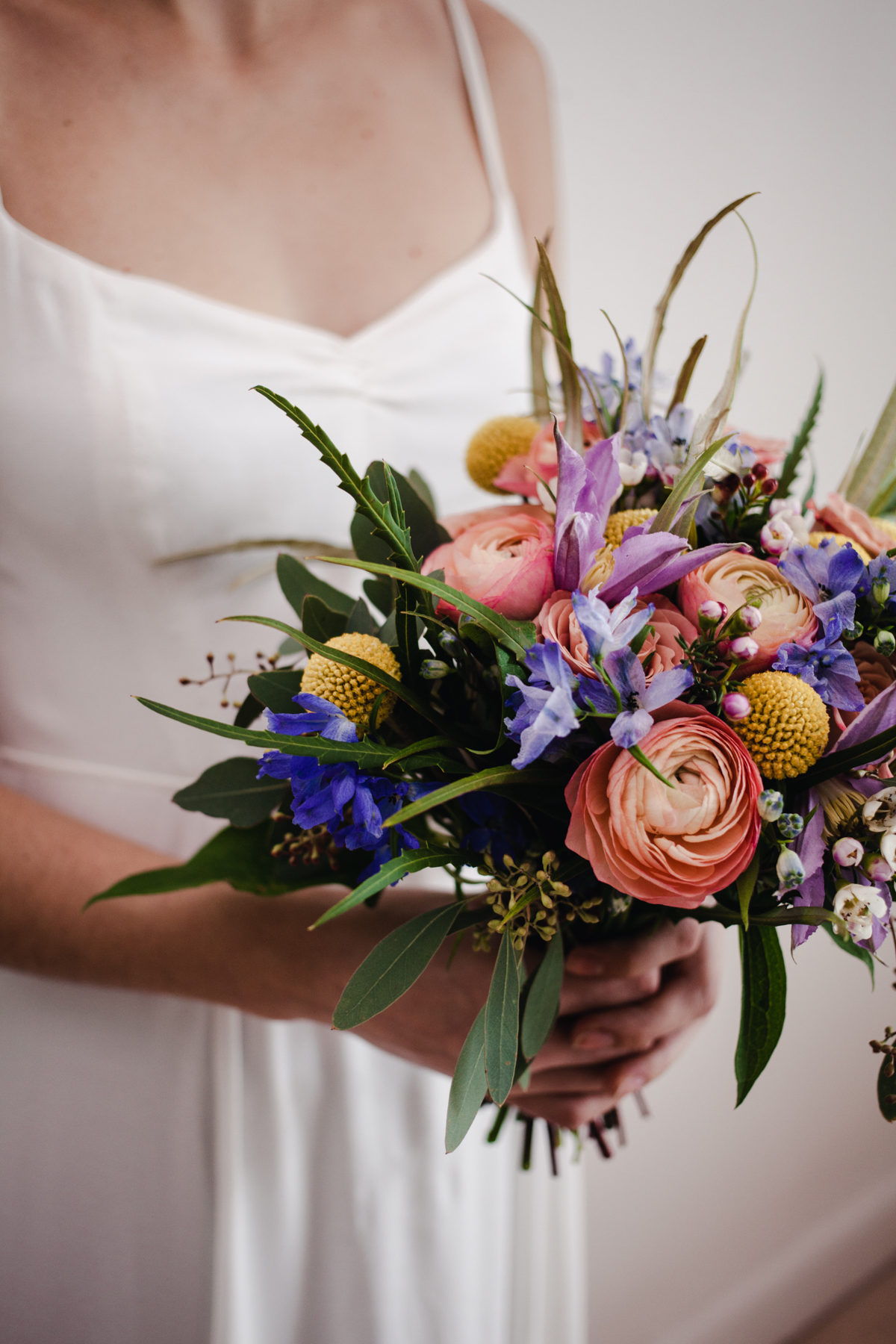 | 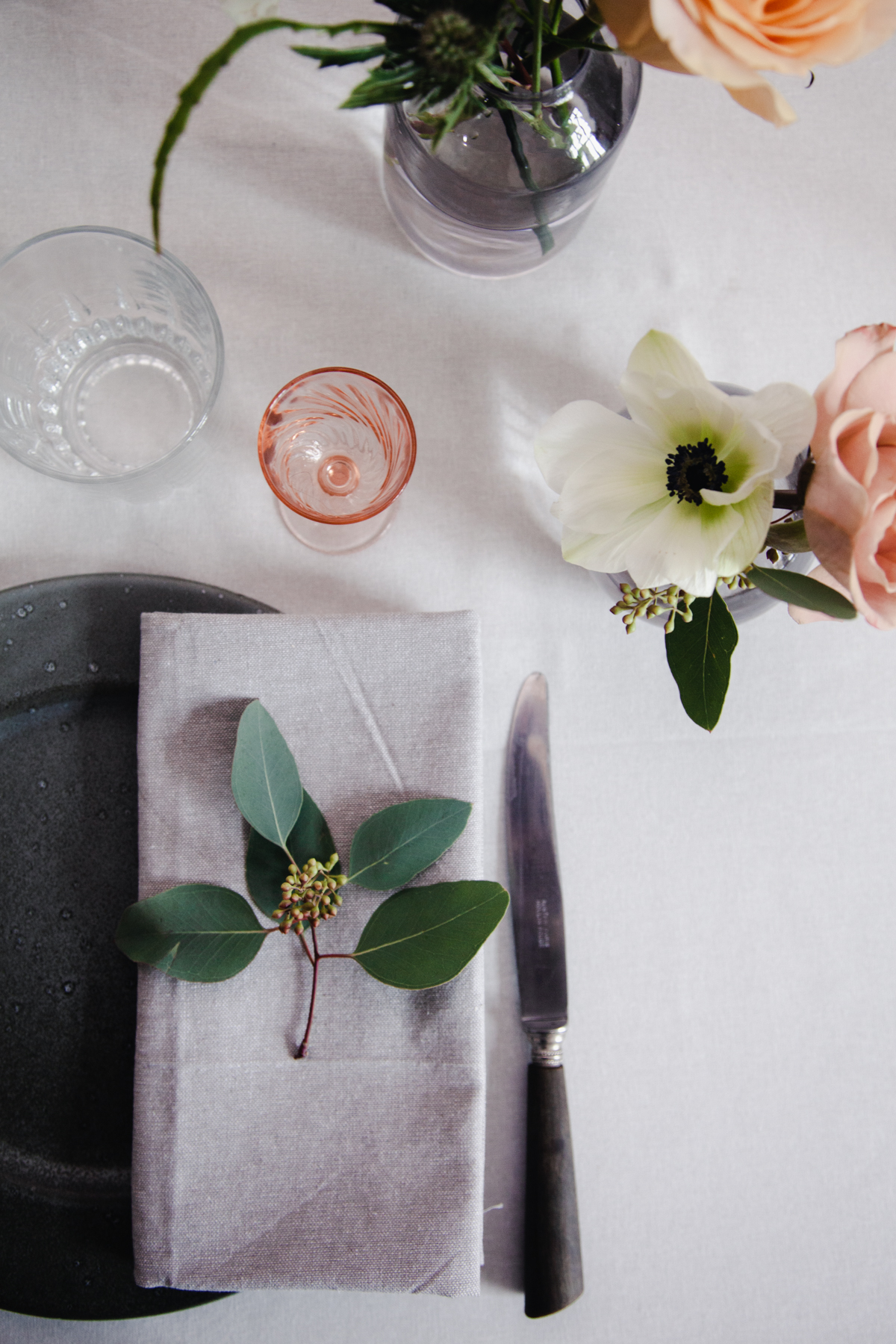 |
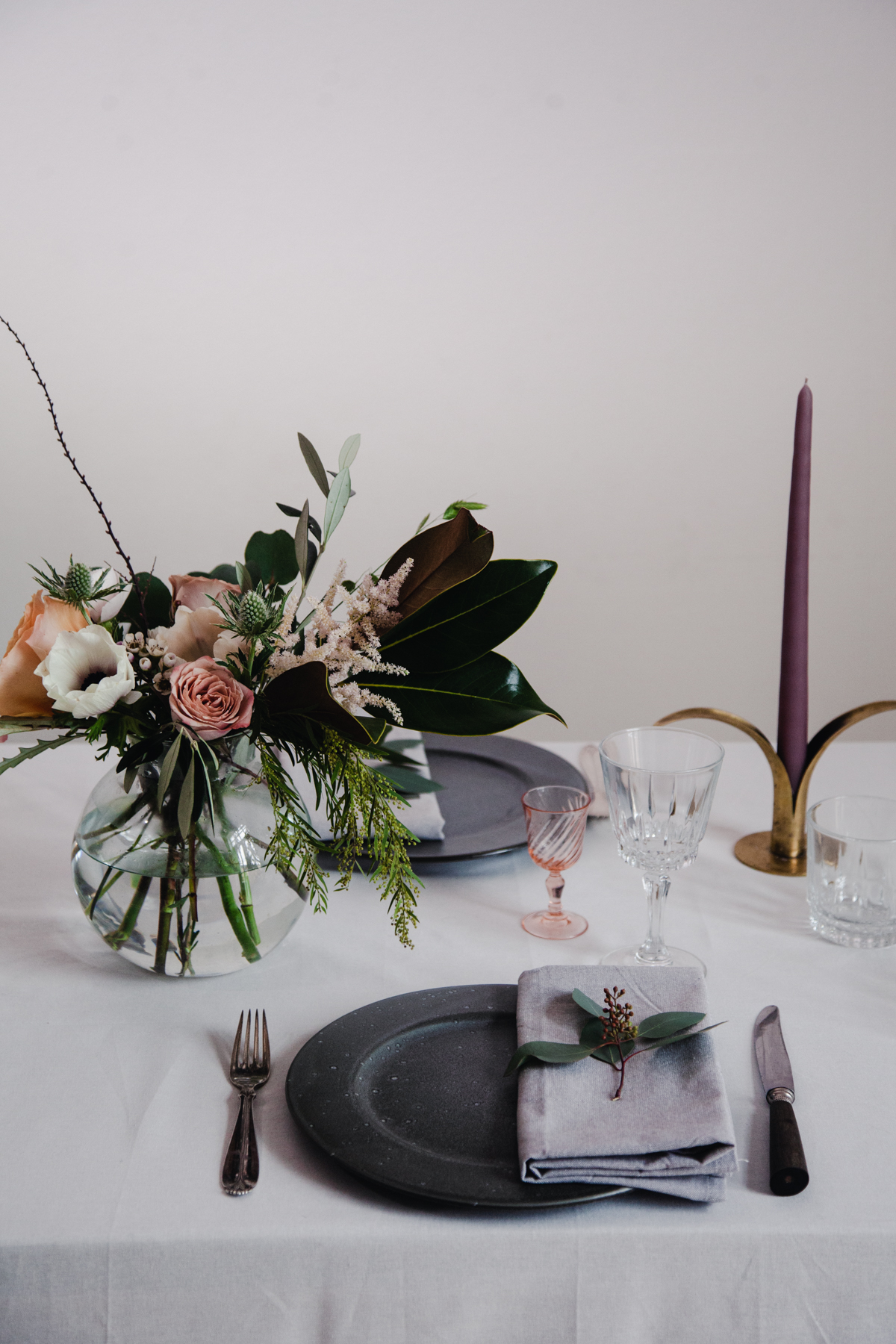 | 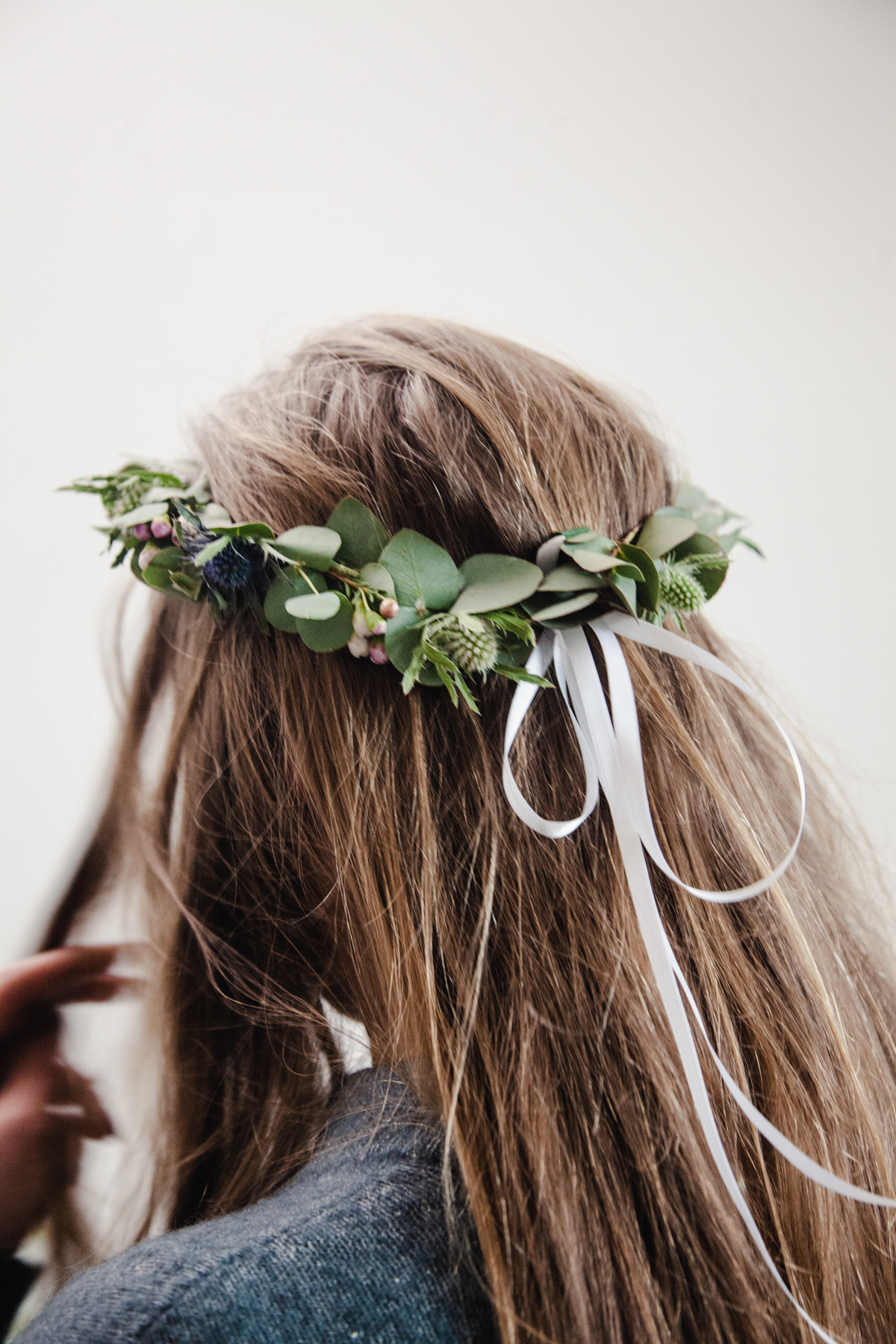 |
As Bike and Bloom expands, they continue to face the challenge of straddling the business and third sector worlds. “We’re kind of in-between those worlds, and that can make it hard for people to understand what we do. Our aim is to communicate that as much as possible so that we can continue to scale and employ even more women,” Benedikte explains.
In addition to their weekly bouquets, Bike & Bloom also provides wedding flowers, flowers for offices, and workshops such as holiday wreaths. With ambitions and hearts as big as this, it’s hard to imagine that they won’t succeed in scaling as they’d like to. But in the meantime, it’s all about hard work. Our meeting ends with both running out the door, off to secure more flowers. As we say goodbye, Benedikte says, “the women we work with are family. Our business is about making people feel like they have a home in Denmark, and actually the business has become the home.”
Find Bike & Bloom bouquets at these locations:
Bike & Bloom sells directly from their bikes at:
Vesterbrogade on the corner of Værnedamsvej
Friday from 2:30 – 5:30 pm
Stefansgade on the corner of Jægersborggade
Saturday from 12:00 – 3:00 pm
Their ambassador shops sell their bouquets Thursday – Saturday:
| Fair Nomad Society (My Fair Shop) Store Kongensgade 74 1165 København K Mèlange de Luxe Darcy’s Kaffe LESS a FAIR No. 105 | Maude’s Salon Gammel Kongevej 164 1850 Frederiksberg Munding Interieur Nova Møbler Pink Flamingo |
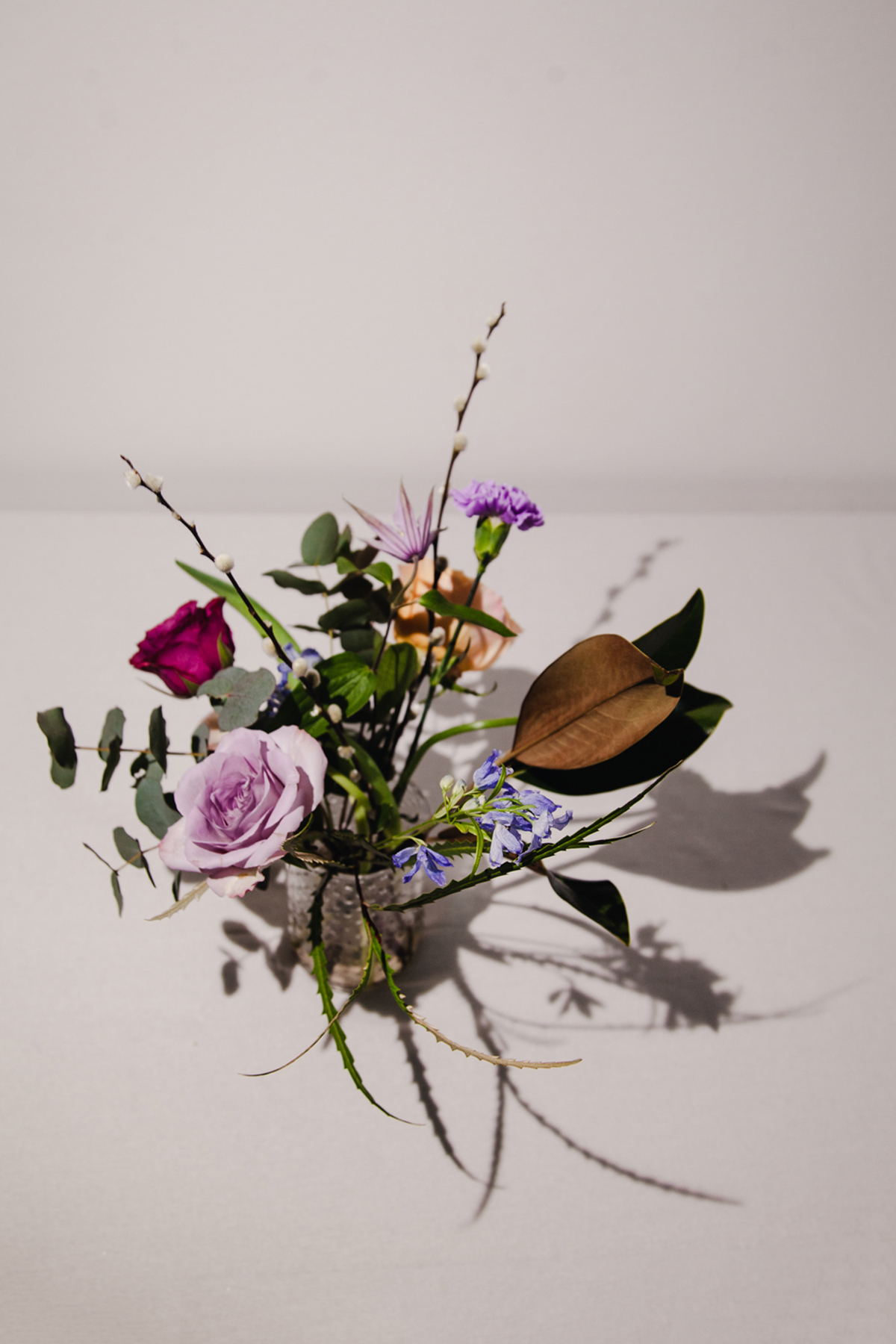 | 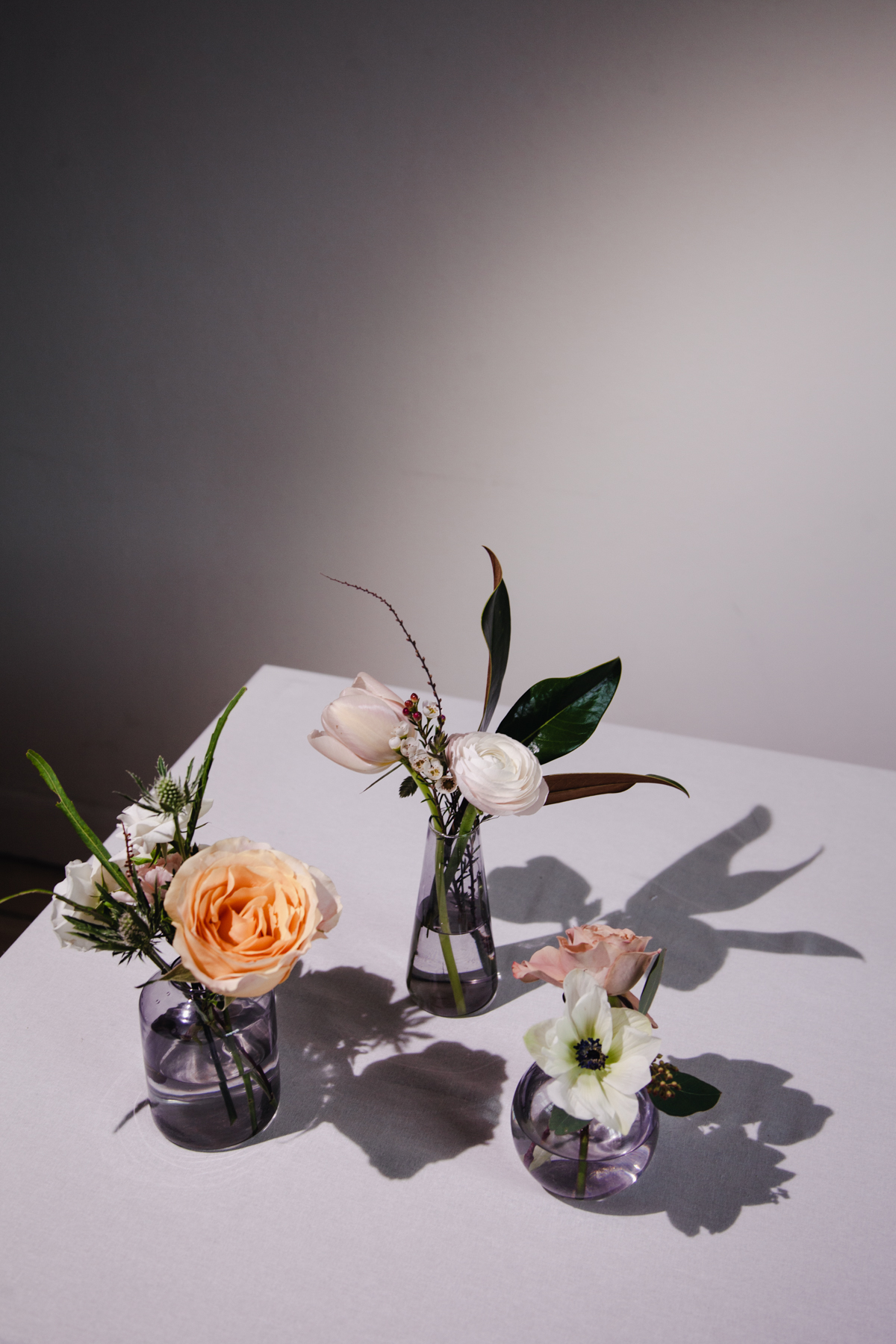 |

